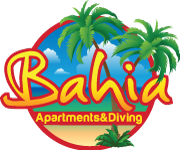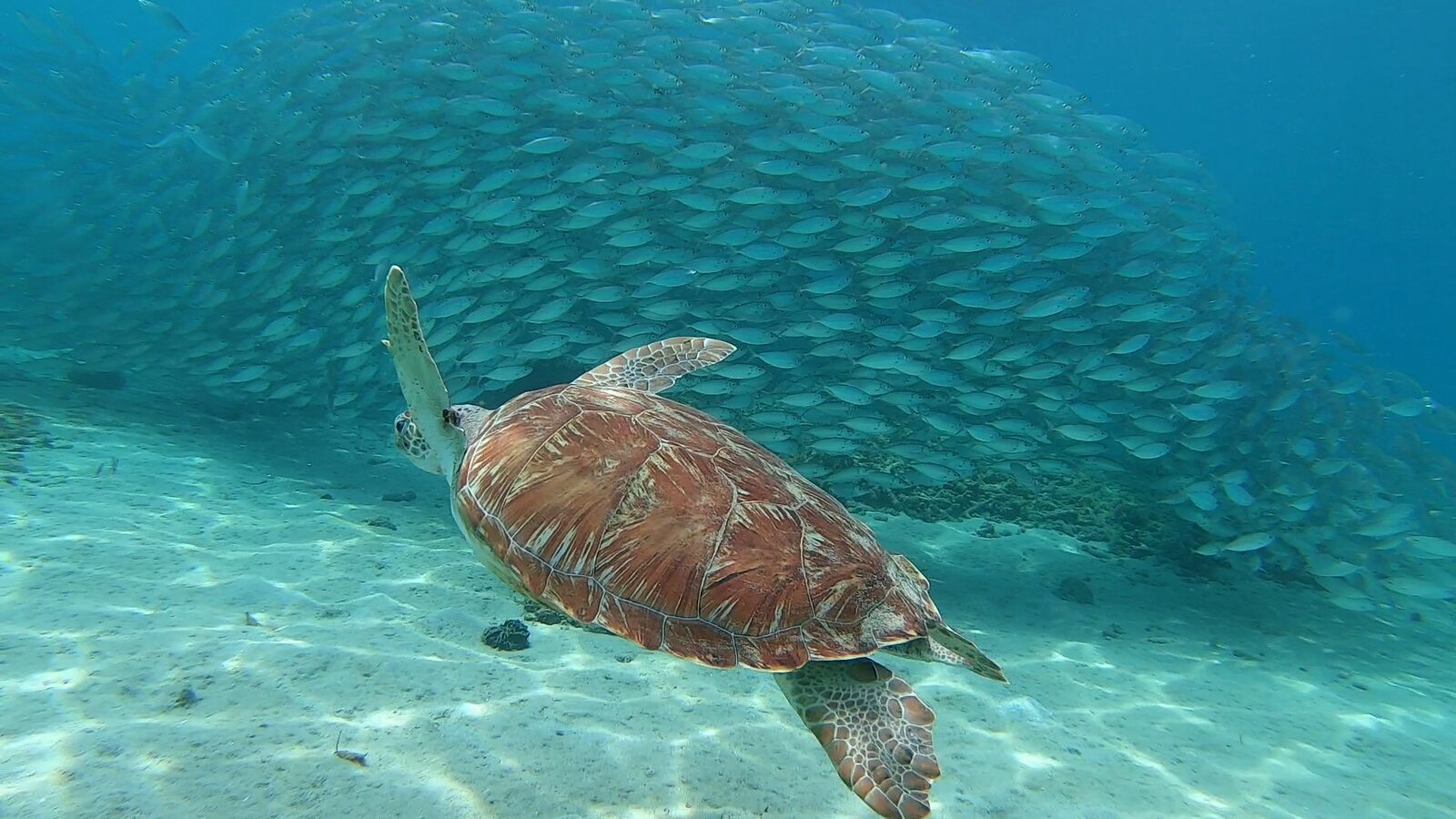



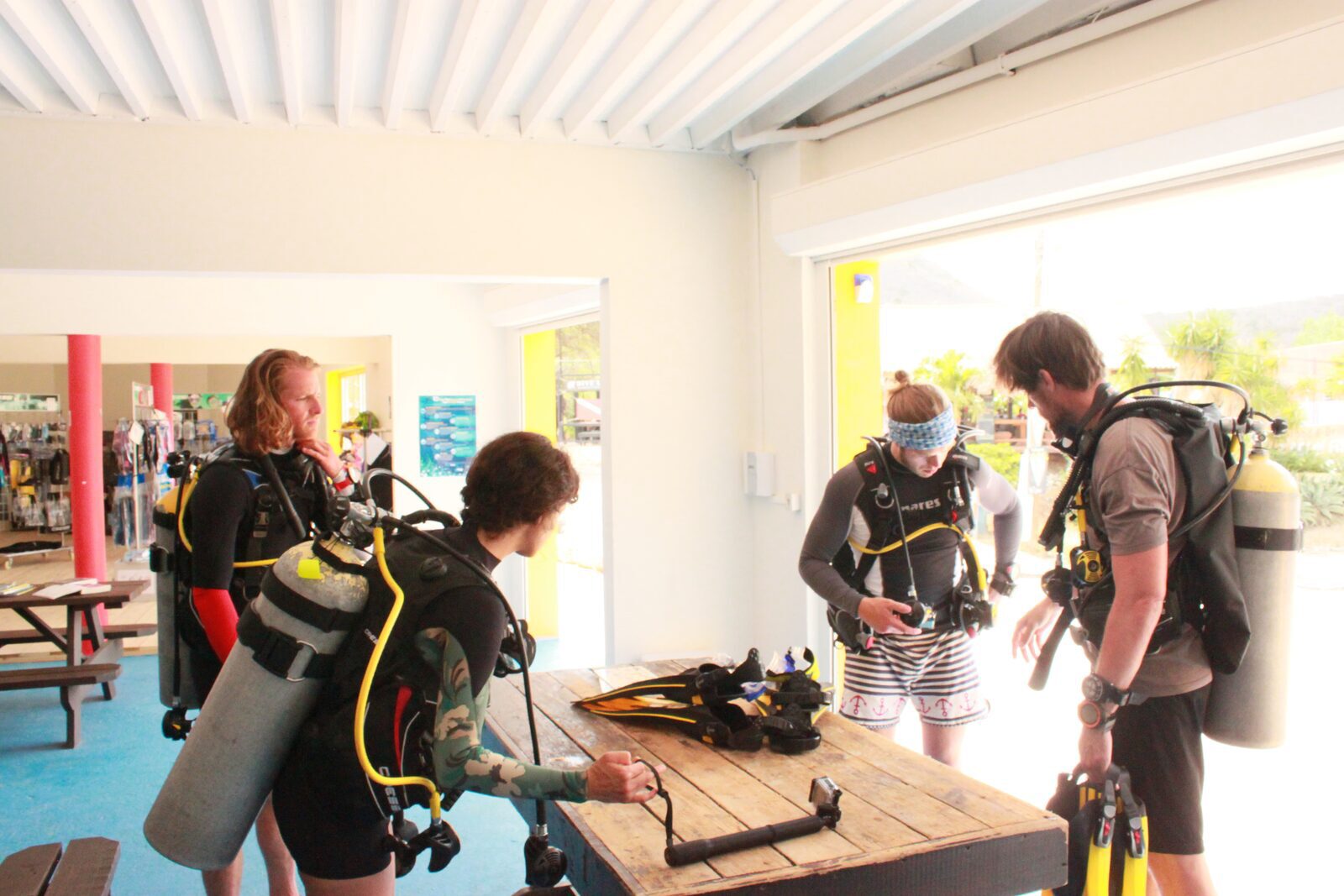
PADI Courses and Specialties
Padi cursussen
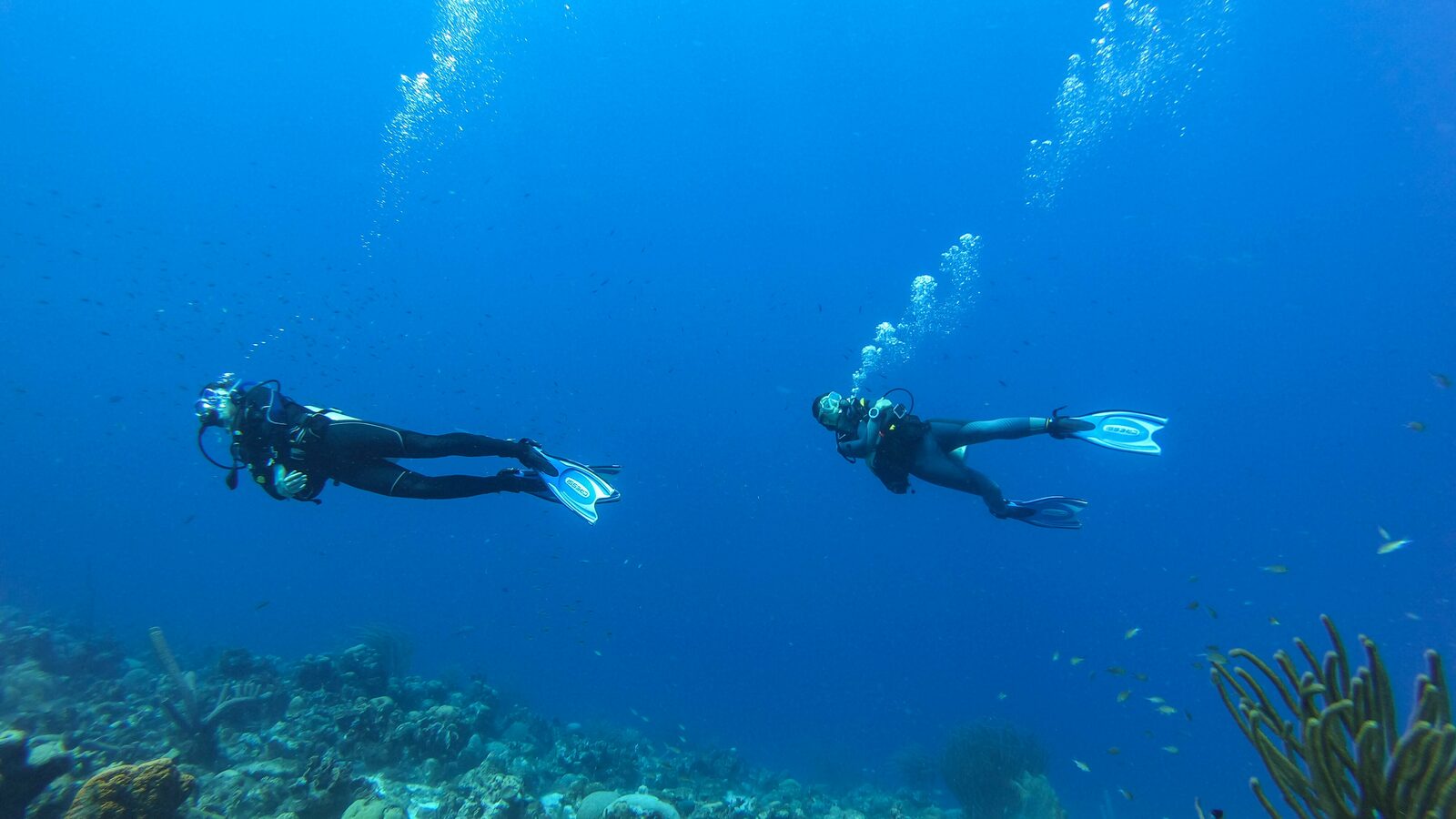
PEAK PERFORMANCE BUOYANCY
Duration varies
Observe aquatic life without disturbing their surroundings. Improve the buoyancy skills you learned as a new diver and elevate them to the next level.
Excellent buoyancy control is what defines skilled scuba divers. You’ve seen them underwater. They glide effortlessly, use less air and ascend, descend or hover almost as if by thought. They more easily observe aquatic life without disturbing their surroundings. You can achieve this, too. The PADI Peak Performance Buoyancy Specialty course improves the buoyancy skills you learned as a new diver and elevates them to the next level.
PADI (Junior) Open Water Divers or higher, who are at least 10 years old, are eligible to take the Peak Performance Buoyancy course.
During two scuba dives, you’ll learn how to:
- Determine the exact weight you need, so you’re not too light or too heavy.
- Trim your weight system and scuba gear so you’re perfectly balanced in the water.
- Streamline to save energy, use air more efficiently and move more smoothly through the water.
- Hover effortlessly in any position – vertical or horizontal.
Get credit! The first dive of this PADI Specialty Diver course may credit as an Adventure Dive toward your Advanced Open Water Diver certification – ask your instructor about earning credit.

NAVIGATION DIVER
Duration 3 dives
The PADI Navigation Diver course fine-tunes your observation skills and teaches you to more accurately use your compass underwater. If you like challenges with big rewards, take this course and have fun finding your way.
If you’re a PADI (Junior) Open Water Diver who is at least 10 years old, you can enroll in the PADI Underwater Navigator Specialty course.
You’ll learn the tools of the trade, including navigation using natural clues and by following compass headings. During three scuba dives, you’ll practice:
- Methods to estimate distance underwater.
- Compass navigation while making at least five turns.
- Marking or relocating a submerged object or position from the surface.
- Underwater map making.

DEEP DIVER
Duration varies
Explore deeper dive sites with confidence at depths down to 40 meters/130 ft. Learn to manage your gas supply, go over buddy contact procedures, and buoyancy control.
The lure of the deep. There’s something exciting and mysterious about exploring deeper dive sites while scuba diving. Sometimes it’s a wreck that attracts you below 18 meters/60 feet, and on wall dives it may be a giant fan or sponge. Whatever it is, to scuba dive with confidence at depths down to 40 meters/130 feet, you should take the PADI Deep Diver Specialty course.
If you’ve earned the PADI Adventure Diver rating or higher, and you’re at least 15 years old, you can enroll in the Deep Diver course.
Your training starts by reviewing reasons for deep diving and how important it is to know your personal limits. During four deep dives with your instructor, you’ll go over:
- Specialized deep diving equipment.
- Deep dive planning, buddy contact procedures and buoyancy control.
- Managing your gas supply, dealing with gas narcosis and safety considerations.
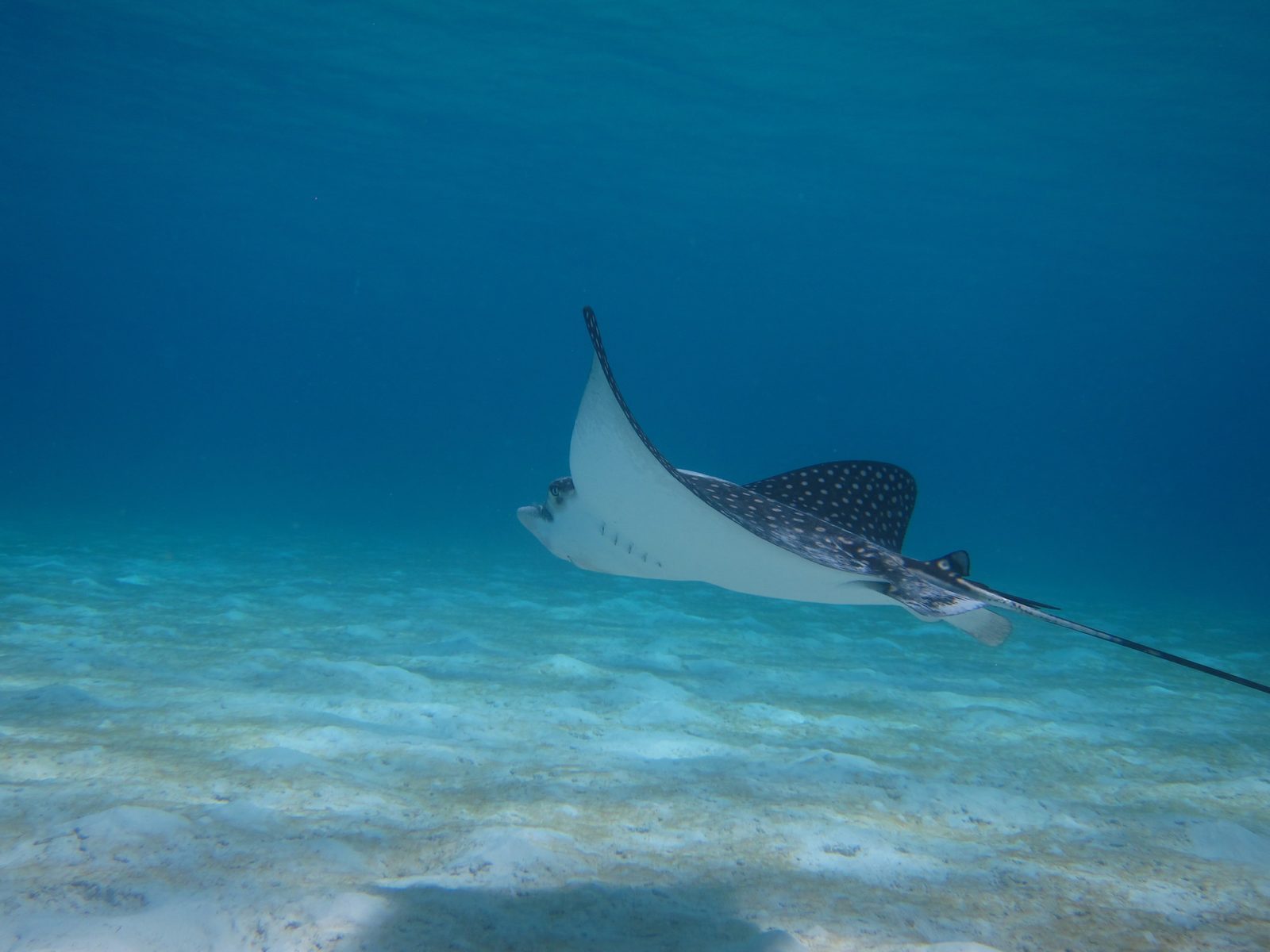
SELF - RELIANT DIVER
Duration varies
The buddy system is key when it comes to safe scuba diving, but the PADI self-reliant diver specialty teaches divers how to handle emergencies on their own.

CORAL REEF CONSERVATION
This course helps you appreciate the complexity of coral reef habitats and teaches how you can help conserve these vital systems.
Everyone likes to scuba dive or snorkel in warm, clear water on a vibrant coral reef, yet many people know little about what they’re seeing or the importance of reef ecosystems. The Coral Reef Conservation Specialty course helps you appreciate the complexity of these habitats and teaches you how you can help conserve these vital systems.
Anyone who has an interest in the aquatic world can take this course. There are no prerequisites or age restrictions and no water sessions are required to earn this non-diving certification.
Through classroom discussions, you learn:
- How coral reefs function and the complex nature of life on a reef.
- Why coral reefs are so important.
- Why many coral reefs are in serious trouble.
- What you can do to prevent further decline.
- How PADI AWARE unites divers and water enthusiasts to make a difference.

ENRICHED AIR NITROX DIVER
Duration • 1 day
The most popular PADI specialty course. Scuba diving with enriched air nitrox gives you more no decompression time, especially on repetitive scuba dives. If staying down longer and getting back in the water sooner sounds appealing, then don't hesitate to become an enriched air diver. You will learn why diving with air has higher oxygen and lower nitrogen content gives you more bottom time, along with enriched air equipment considerations. During a practical session, and two optional (or required) scuba dives, you’ll:
- Discuss managing oxygen exposure
- Practice analyzing oxygen content in your scuba tank
- Set your dive computer for diving with enriched air nitrox
